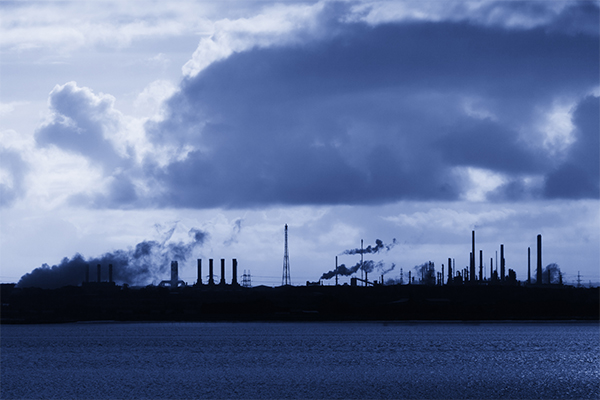The energy efficiency of firms
Why are some firms greener than others?
 On top of increasingly stringent regulations, there is also growing corporate social responsibility for firms to ‘green up’, but some companies are – or appear to be – more environmentally friendly than others.
On top of increasingly stringent regulations, there is also growing corporate social responsibility for firms to ‘green up’, but some companies are – or appear to be – more environmentally friendly than others.
Our researchers have conducted a number of cutting-edge studies – looking at companies around the world, from Ghana to Japan – to discover more about why this might be. The results provide a deeper insight into how businesses can achieve increased energy efficiency.
Outsourcing
In recent years there has been a dramatic rise in the number of firms shifting stages of their production processes overseas. We have investigated whether firms outsource the pollution-intensive stages of production to countries with laxer regulations in order to appear greener and to minimise domestic environmental costs – and we’ve found evidence to suggest that this is the case. There’s a bigger issue too: that pollution can appear to be reducing in certain countries, when in fact it’s only being shifted elsewhere.
Environmental spillovers
We have found that domestic firms in developing countries can benefit from contact and trade with international firms. This ‘spillover effect’ – which includes energy efficiency – is due to foreign-owned firms being more likely to implement environmental management systems, and the presence of foreign-owned firms in those sectors from which a company is buying being more likely to encourage good environmental practice. We have also investigated whether firms based in the developing world that are run by overseastrained management are ‘greener’, and our econometric results suggest that the foreign training of a firm’s decision-maker does reduce fuel use.
Spatial clustering
Our research has found that firms can learn from the behaviour of neighbouring companies: ‘Spatial clustering’ can encourage similar ways of working – including more energy-efficient practices and a reduction in pollution emissions – through sheer imitation, networking contacts and ‘yardstick competition’.
Dirty money
We have looked at whether there is a wage premium for working in a pollution-intensive industry, and the answer is that there is – but an extremely small one: Our results for the economy as a whole suggest a wage premium of about one-quarter of one per cent associated with the risk of working in a dirty job.
Green jobs
Green growth is increasingly being seen as a means of simultaneously meeting current and future climate change obligations and reducing unemployment. We have examined how the provision of green goods and services has affected various aspects of the US economy. A key finding is that industries that increased their provision of green goods and services grew more slowly, reduced their expenditure on technology inputs and increased their demand for medium-educated workers, while at the same time reducing their demand for low-skilled workers.